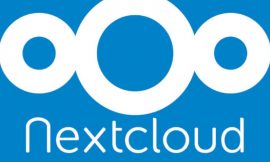A disagreement between IBM staffers about a Linux kernel maintainer using a personal email address in a commit boiled over into public view and gave some people the wrong impression of IBM’s stance on open source. It’s time to correct the record.

Image: Getty Images/iStockphoto
Author’s note: This article has been updated with new commentary that reflects comments and additional information from IBM.
I must confess, I was guilty of being reactionary when I first read and wrote about a situation between two IBM employees, one of whom is a Linux kernel maintainer. I reacted because open-source is near and dear to my heart, something I’ve been passionate about since the late nineties. But my initial reaction was based on only one side of the story, the kernel maintainer’s. Since then, I’ve had a chance to speak with IBM, hear their account of what happened and gain a better understanding of how the company works to support the Linux open-source community.
Here’s what happened.
Earlier this month, two IBM employees had a disagreement over one of them using a personal email address for work they did as a maintainer of the repository for the IBM Power SR-IOV Virtual NIC driver for the upstream Linux kernel. According to the developer who used their personal email address, another IBM staffer sent them the following message:
“As an IBM employee, you are not allowed to use your Gmail account to work in any way on VNIC. You are not allowed to use your personal email account as a ‘hobby’. You are an IBM employee 100% of the time. Please remove yourself completely from the maintainers file. I grant you a one-time exception on contributions to VNIC to make this change.”
Initially, I characterized these statements as a “bit draconian” and criticized IBM for asserting that a person is the company’s employee “100% of the time”. Turns out, this isn’t IBM’s official position at all. In fact, the company promotes and encourages engagement in the open-source community, regardless of if an employee uses a personal or business email address.
During an interview with Todd Moore, VP Open Technology at IBM, Moore made it clear that IBM has over 80,000 employees who are trained to contribute and participate in open source. The company has processes, classes and mentors who aid in this training. Employees can certify in contributing to open-source projects and IBM encourages this. According to Moore, IBM made 19,000 commits to open source projects last month alone.
“We respect our developer’s need to be individuals, and their open source code contributed under a personal ID represents them and their resume” said Moore. “Often our contributors will have a personal GitHub ID and an IBM GitHub ID. We use tooling to track contributions under both IDs to ensure everyone gets credit towards our recognition program.”
IBM has a program called IBM Developer, which is a technology-based resource, where developers can discover ways to get involved with open source. The company also introduced the Call for Code global challenge (in conjunction with the Linux Foundation) which takes projects and assists them in getting to market.
According to Moore, this event was a one-off disagreement in which neither party followed IBM’s own guidelines for resolving such situations. And unfortunately, it boiled over into public view with many people making a judgement about IBM after only hearing one side of the story, including yours truly.
We should all remember that with open-source, the line between the personal and professional can be a bit blurry. There are Linux kernel developers all over the world, some are employed to work on the kernel, and some do it on their own time, without getting paid. But even some developers who aren’t paid for their work on the kernel are employed by companies that directly benefit from the work. Companies who employ these developers hopefully understand the importance of their work.
Moore said IBM definitely does and that the company values and encourages “contribution whether it be code, code reviews, documentation, issue triage, or advocacy as part of their careers or their own time.”
For those companies that don’t understand this idea, and balk at developers working on projects outside of the company, you tread a very dangerous line. You don’t own your employees. They have lives outside of the business and can work on other projects. Trying to coerce them otherwise treads too close to dystopian fiction akin to one of my favorite books, “Jennifer Government,” where employees’ surnames must match the company they work for. As much as I love writing for TechRepublic (and the people I work with), I would not be happy if I had to change my name to Jack TechRepublic.
Subscribe to TechRepublic’s How To Make Tech Work on YouTube for all the latest tech advice for business pros from Jack Wallen.
Also see
Source of Article



